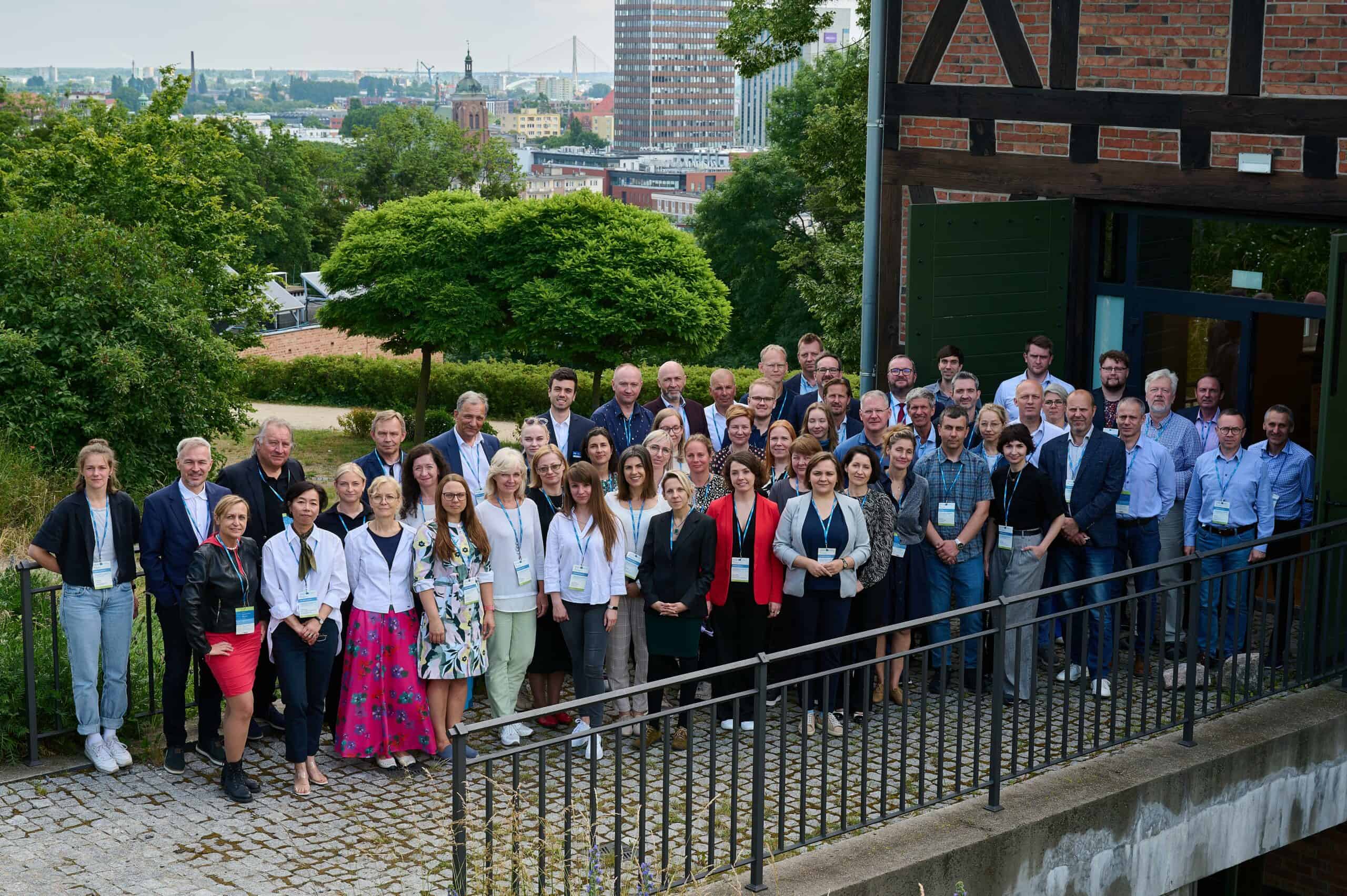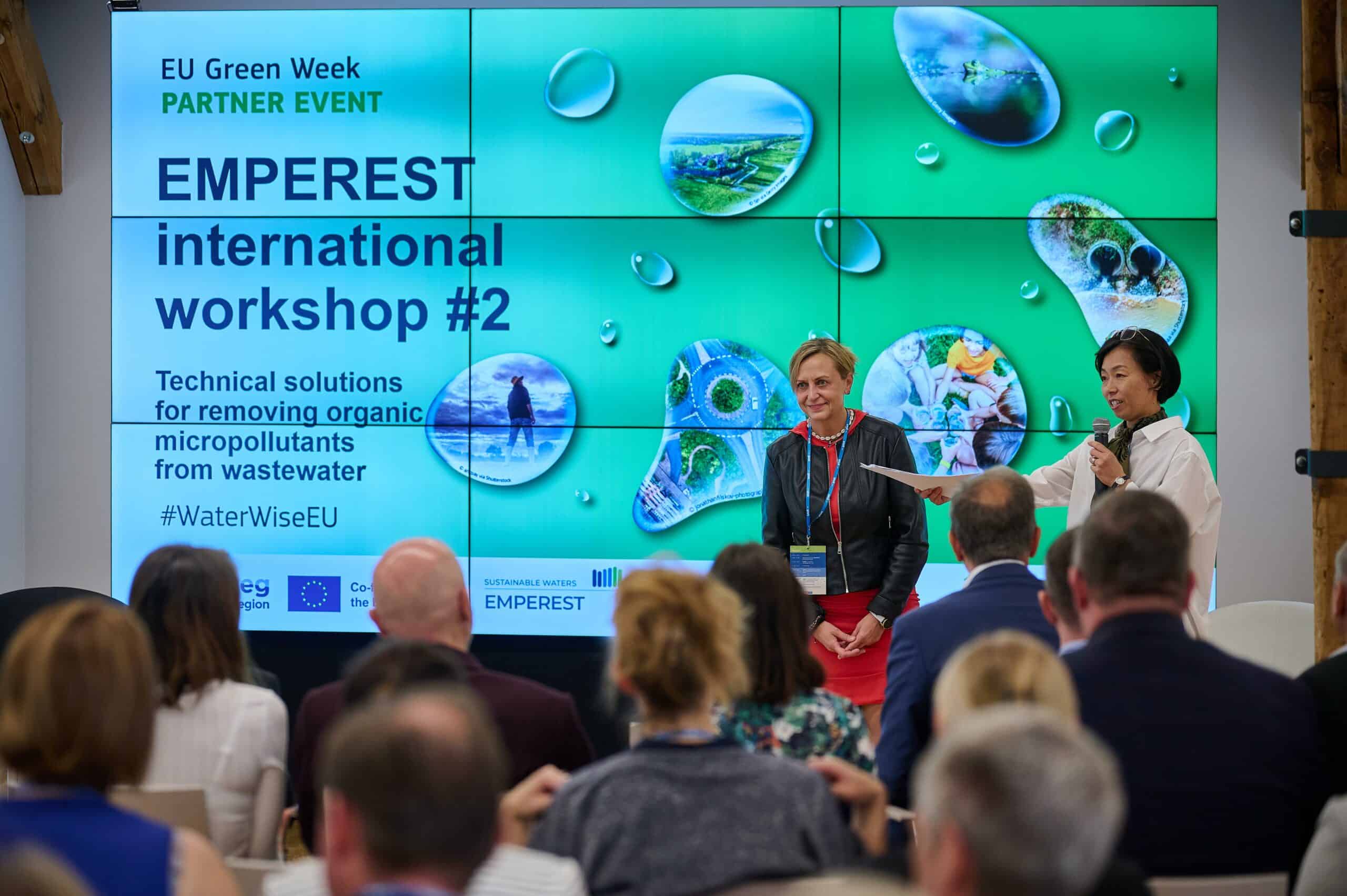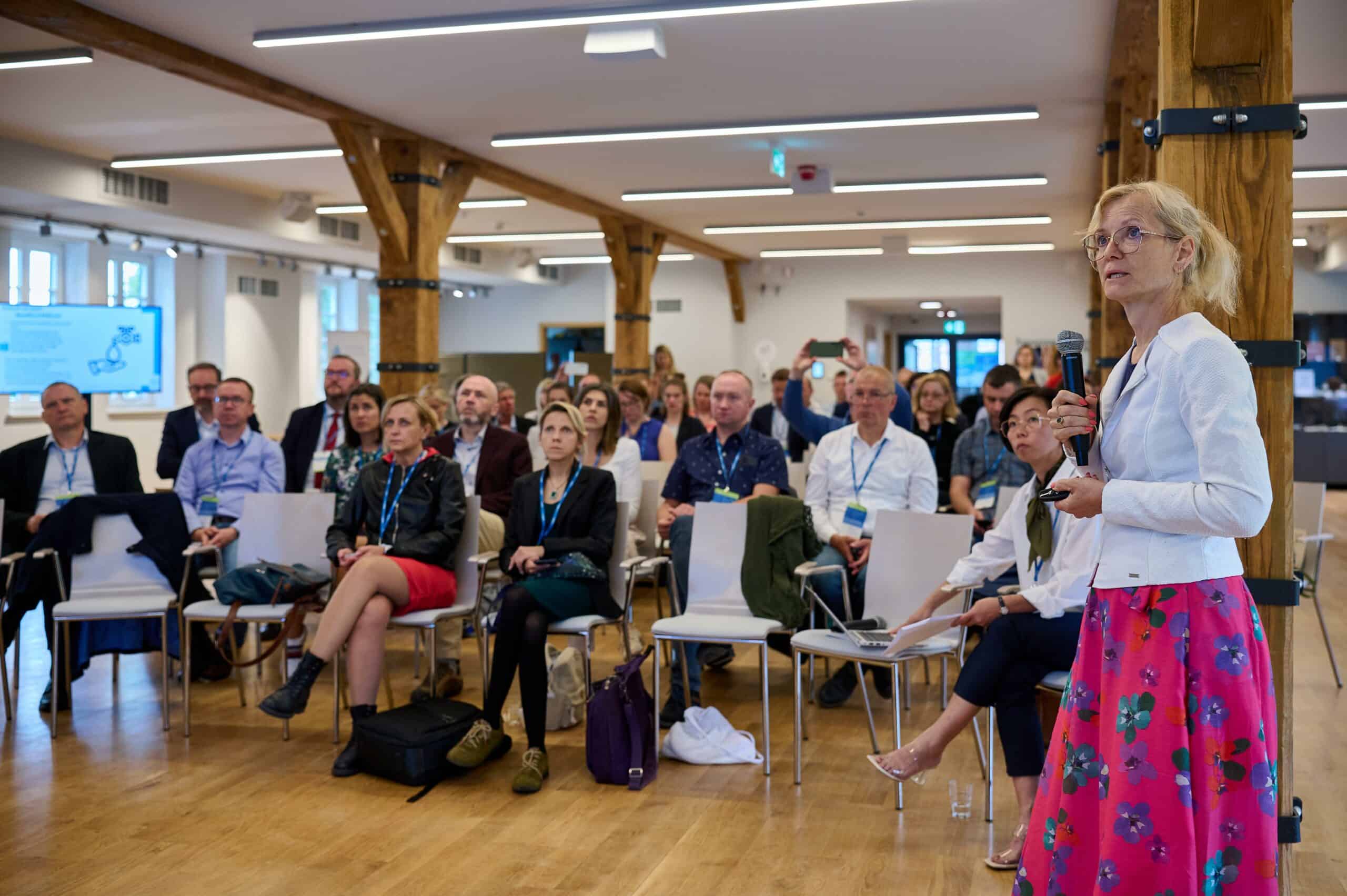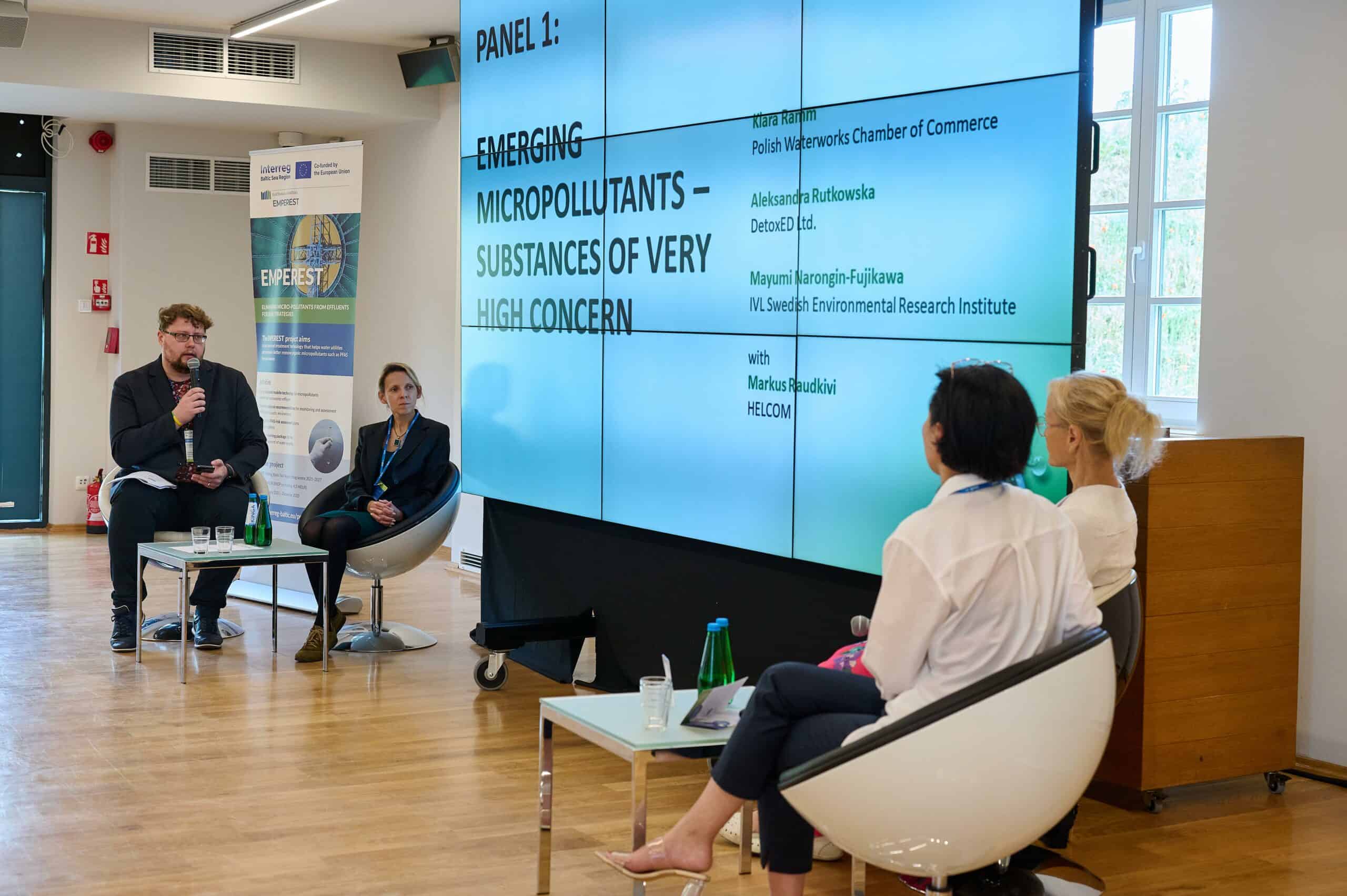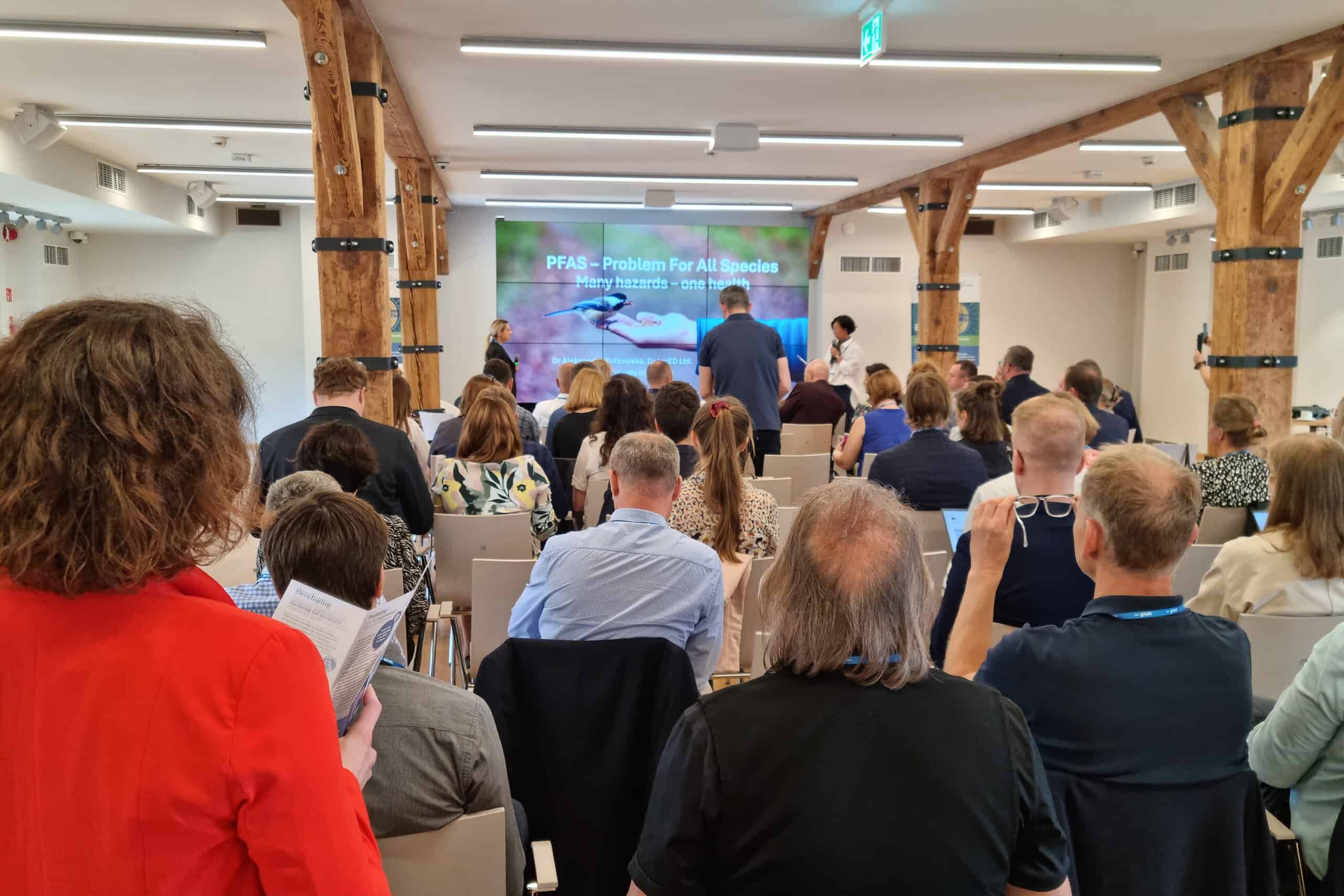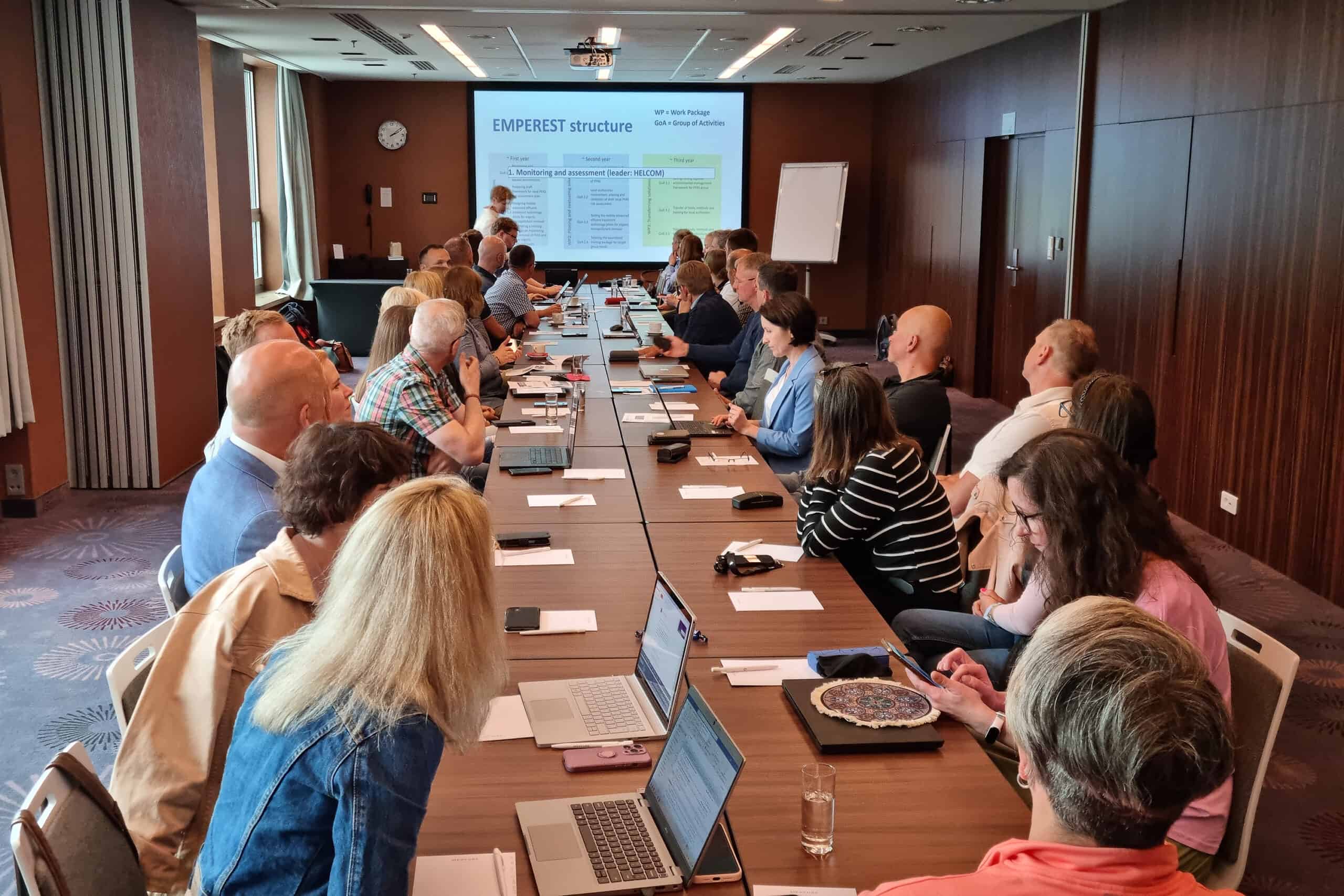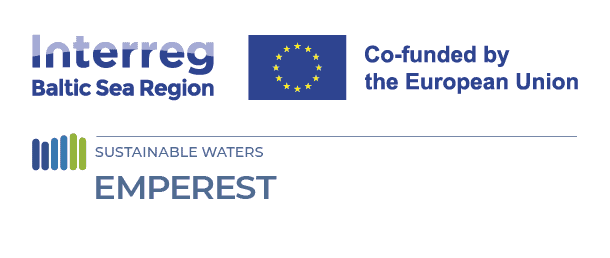
EMPEREST working towards a water resilient Europe as EU Green Week partner
17 June 2024
Our aim is to decrease the amount of PFAS and other organic micropollutants in the water cycle. EMPEREST was present at the Green Week main conference in Brussels on 29-30 May and organised own Green Week partner event in Gdańsk on 11 June 2024.
EMPEREST in Brussels on 29-30 May 2024
In the conference in Brussels, PFAS were mentioned at least once in almost all sessions. This gave us with the EMPEREST project a great opportunity to show off our PFAS work and start discussions at the event, highlighting the main issues our water sector is facing with these substances. As a larger symptom of the fundamental problems in our current chemical legislation, PFAS has provided us a wake-up call, which most stakeholders even on the political level agreed with wholeheartedly.
“We should not only look at water through the economic lens – we do; but we should also look at economy through the water lens,” emphasized Henk Ovink, Executive Director at the Global Commission on the Economics of Water.
We need to face the fact that the water cycle is broken, and we need to start seeing water differently. This includes having widespread legislation about the use and especially exploitation of water resources in different sectors and setting up systems that value water in a way it’s not valued right now. Another main message of the conference was that water is not only a problem, but an opportunity for cooperation, which is something we in the Baltic Sea region understand very well.
EMPEREST in Gdańsk on 11 June 2024
The many opportunities for cooperation were showcased in Gdańsk on 11 June. Over 65 participants from different countries surrounding the Baltic Sea gathered in the beautiful conference site Hevelianum for a full-day seminar on “Technical solutions for removing organic micropollutants from wastewater”. The seminar was part of the second workshop of the EMPEREST international series.
The workshop was hosted by Gdańsk Water Utilities, and among the participants there were wastewater treatment plants’ decision-makers and operators, local and national authorities, researchers, private company representatives and NGOs.
“Legislation changes are coming – and the EMPEREST project allows us to stay ahead of them,” highlighted Jacek Skarbek, President of the Management Board of Gdańsk Water Utilities, opening the workshop.
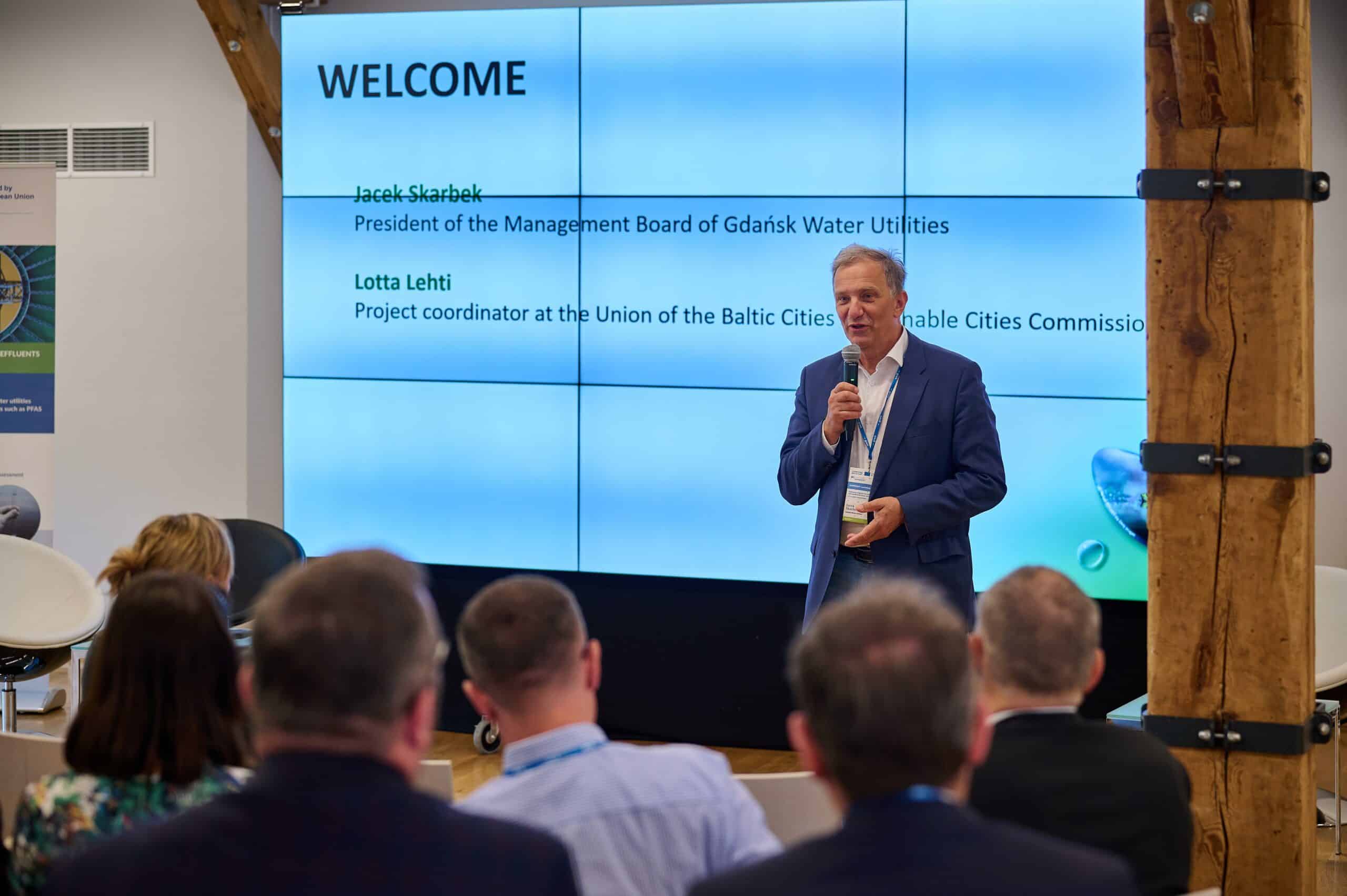
On the photo: Jacek Skarbek opening the workshop. Photo by Gdańsk Water Utilities.
The current and upcoming EU legislation related to PFAS and other organic micropollutants, was one of the highlights of the first panel, together with the presentations on PFAS threats towards human health and the environment. Klara Ramm, Executive Committee member and General Assembly Representative from Poland at EurEau (European Federation of National Associations of Water Services), explained how complex the removal of PFAS actually is, which creates a heavy financial burden with its costly technologies, is a large source of GHG emissions in the currently available PFAS removal technologies, and even when it comes to sludge management, its pollution only spreads e.g. during the composting stage.
As a continuation of this dialogue, the second workshop panel focused on solutions, presenting the technologies tested in EMPEREST mobile pilots – including ozonation, UV disinfection and granular activated carbon. The results of these tests will offer pathways for other WWTPs in the region planning investments to meet the upcoming requirements on more efficient removal of organic micropollutants. Other projects in that session were also introducing e.g. foam fractionation, phytoremediation, electrochemical oxidation to remove PFAS from water. Finally, the third panel was launched with a series of pitches from different companies and projects presenting their solutions to elimination of PFAS, opening the time for networking and exchange.
While in Gdańsk, the EMPEREST partnership held internal meetings on 10 and 12 June 2024 to discuss the project progress and brainstorm on next activities. The partnership also got to visit the EMPEREST mobile container connected at the local Wschód WWTP and see it in action. The local host, Gdańsk Water Utilities, is celebrating its 20 years anniversary in 2024, and is successfully raising the awareness of the general public on water issues, simultaneously designing and testing the cutting-edge technologies in EMPEREST.
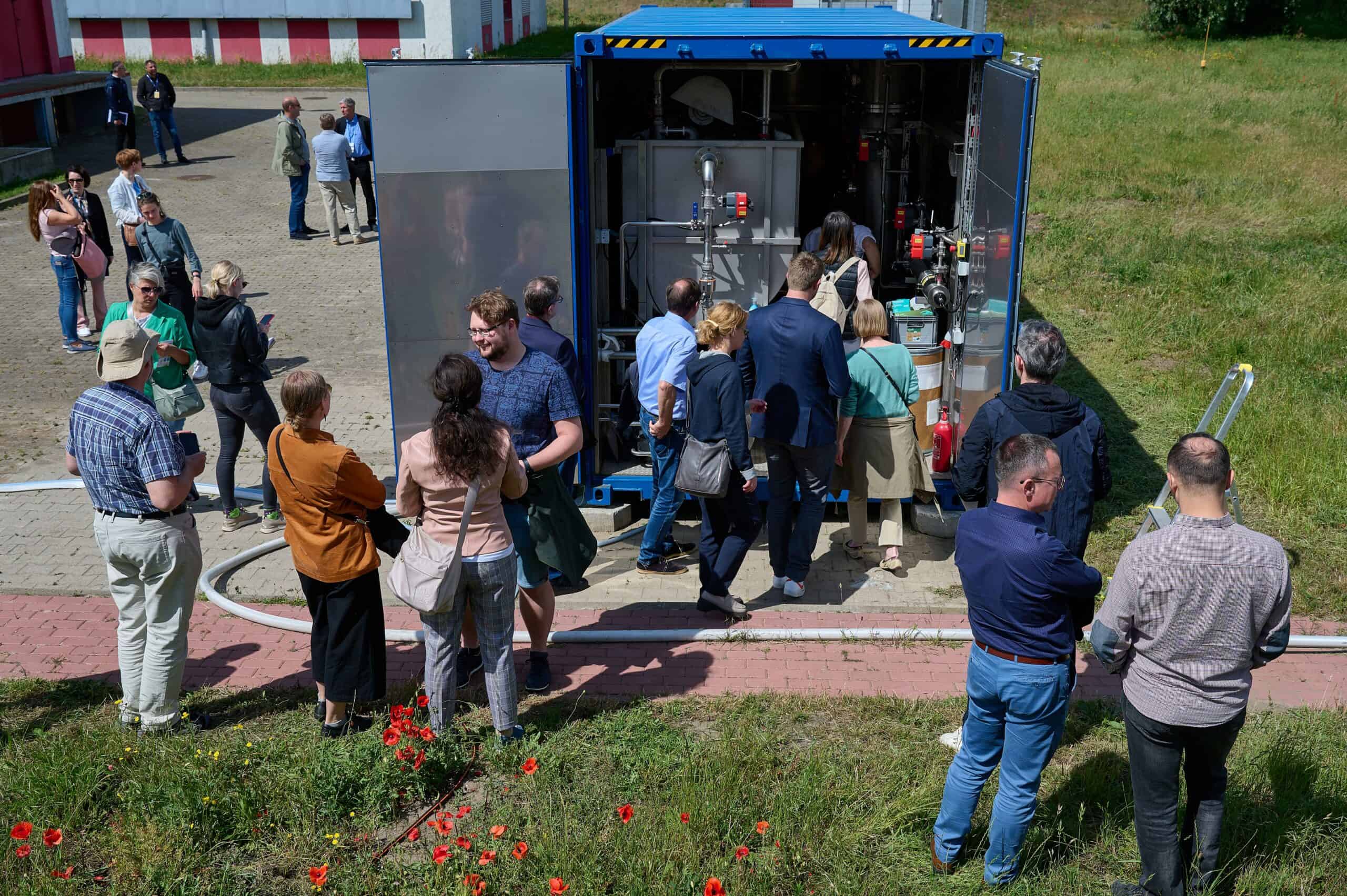
On the photo: EMPEREST partners visiting the mobile container built in Gdańsk WWTP. Photo by Gdańsk Water Utilities.
Written by: Markus Raudkivi (HELCOM), Mariia Andreeva and Lotta Lehti (UBC Sustainable Cities Commission)
